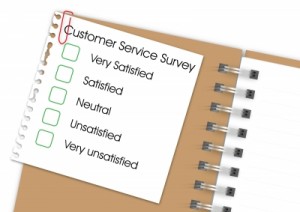Checklist for Finding a Personal Trainer
by Laura DeAngelis, NASM CPT, AFAA Group Exercise Instructor
If you’ve joined a gym and haven’t been to one in awhile – or ever – I highly recommend spending some time with Personal Trainers who can help you get familiarized with the equipment and start a safe routine. Many gyms offer one or more free sessions to welcome you to the facility. If that’s the case, take advantage of the opportunity to get some guidance. Alternatively, you might want to check out an online personal trainer such as Nathan Fitness as they can help you reach your fitness goals through custom training schedules at an affordable price.
In order to create a safe and effective exercise program, a good trainer will conduct a fitness assessment and collect the following information before your first stretch, step on a stair machine or set of squats.
Readiness for Exercise: Be prepared to answer questions about whether you experience things like chest pain, dizziness or balance problems and if you’re on certain medications. These questions are part of the PAR-Q, which stands for The Physical Activity Readiness Questionnaire. It helps trainers identify people who are clear for activity and those who may need medical attention. However, DON’T expect a trainer to make a medical diagnosis or prescribe treatment for a condition you haven’t discussed with your health care provider.
Medical History: Whether you’ve suffered from bad ankle sprains or had back surgery, injuries and surgical procedures can alter how the body moves and cause muscle imbalances. When these imbalances aren’t addressed, your body makes compensations through altered joint motion which can ultimately lead to injury.
Occupation: Wear heels to work everyday? There’s a good chance your calves are tight. Spend long hours sitting at a computer? Your hip flexors are probably screaming (as mine do) to be stretched. Perform repetitive movements all day like painting or construction work? Your lats may need a little TLC.
Hobbies: Do you spend your days off chasing a tennis ball and/or the kids or vegging out on the couch? Having information about all your daily activities will help your trainer develop a better customized exercise program.
Measurable Data: Your personal trainer should also collect objective information through movement assessments, one of the most important being the overhead squat assessment. As I learned through my NASM instruction, this dynamic postural assessment is key when creating a safe and effective exercise program. Observing a person’s feet, knees, lumbo-pelvic-hip complex and shoulder complex while he or she performs an overhead squat shows which overactive muscles need to be stretched and which under-active muscles need to be strengthened.
Additional Objective Information: Along with the postural and movement assessments, your trainer can collect other data including body-composition measurements and physiologic assessments such as heart rate.
It’s also important to find someone who you listens to you and helps you understand the strategy toward reaching your goals. Finding the right personal trainer is one tool that can help you get a jump start on the path to have fun, be fit and feel fabulous!
Laura DeAngelis is an independent personal trainer in New York City who received her certification through the National Academy of Sports Medicine (NASM). She’s also a certified Group Exercise Instructor through the Aerobics & Fitness Association of America (AFAA) and a Licensed Zumba® Instructor. When she’s not training, Laura currently works as the Director of Production at West Glen Communications, Inc. where she also hosts “Health & Home Report.” For more of Laura’s health and fitness tips, check out her blog at LauraLovesFitness.com







